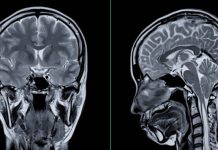
The US Food and Drug Administration (FDA) on 6 January approved lecanemab, the second of a new category of medications approved for Alzheimer’s disease that target the fundamental pathophysiology of the disease. These medications represent an important advancement in the ongoing fight to effectively treat Alzheimer’s disease, the FDA said in a statement.
Lecanemab, marketed as Leqembi, is manufactured by biotechnology companies Biogen and Eisai. Alzheimer’s disease is an irreversible, progressive brain disorder that slowly destroys memory and thinking skills and, eventually, the ability to carry out simple tasks.
While the specific causes of Alzheimer’s are not fully known, it is characterized by changes in the brain—including amyloid beta plaques and neurofibrillary, or tau, tangles—that result in the loss of neurons and their connections. These changes affect a person’s ability to remember and think.
“Alzheimer’s disease immeasurably incapacitates the lives of those who suffer from it and has devastating effects on their loved ones,” said Billy Dunn, director of the Office of Neuroscience in the FDA’s Center for Drug Evaluation and Research. “This treatment option is the latest therapy to target and affect the underlying disease process of Alzheimer’s, instead of only treating the symptoms of the disease.”
Leqembi was approved using the Accelerated Approval pathway, under which the FDA may approve drugs for serious conditions where there is an unmet medical need and a drug is shown to have an effect on a surrogate endpoint that is reasonably likely to predict a clinical benefit to patients. The results of the Phase 3 randomized, controlled clinical trial to confirm the drug’s clinical benefit have recently been reported and the agency anticipates receiving the data soon.
Researchers evaluated Leqembi’s efficacy in a double-blind, placebo-controlled, parallel-group, dose-finding study of 856 patients with Alzheimer’s disease. Treatment was initiated in patients with mild cognitive impairment or mild dementia stage of disease and confirmed the presence of amyloid beta pathology.
Patients receiving the treatment had significant dose- and time-dependent reduction of amyloid beta plaque, with patients receiving the approved dose of lecanemab, 10 milligram/kilogram every two weeks, having a statistically significant reduction in brain amyloid plaque from baseline to Week 79 compared to the placebo arm, which had no reduction of amyloid beta plaque.
These results support the accelerated approval of Leqembi, which is based on the observed reduction of amyloid beta plaque, a marker of Alzheimer’s disease. Amyloid beta plaque was quantified using positron emission tomography (PET) imaging to estimate the brain levels of amyloid beta plaque in a composite of brain regions expected to be widely affected by Alzheimer’s disease pathology compared to a brain region expected to be spared of such pathology.







